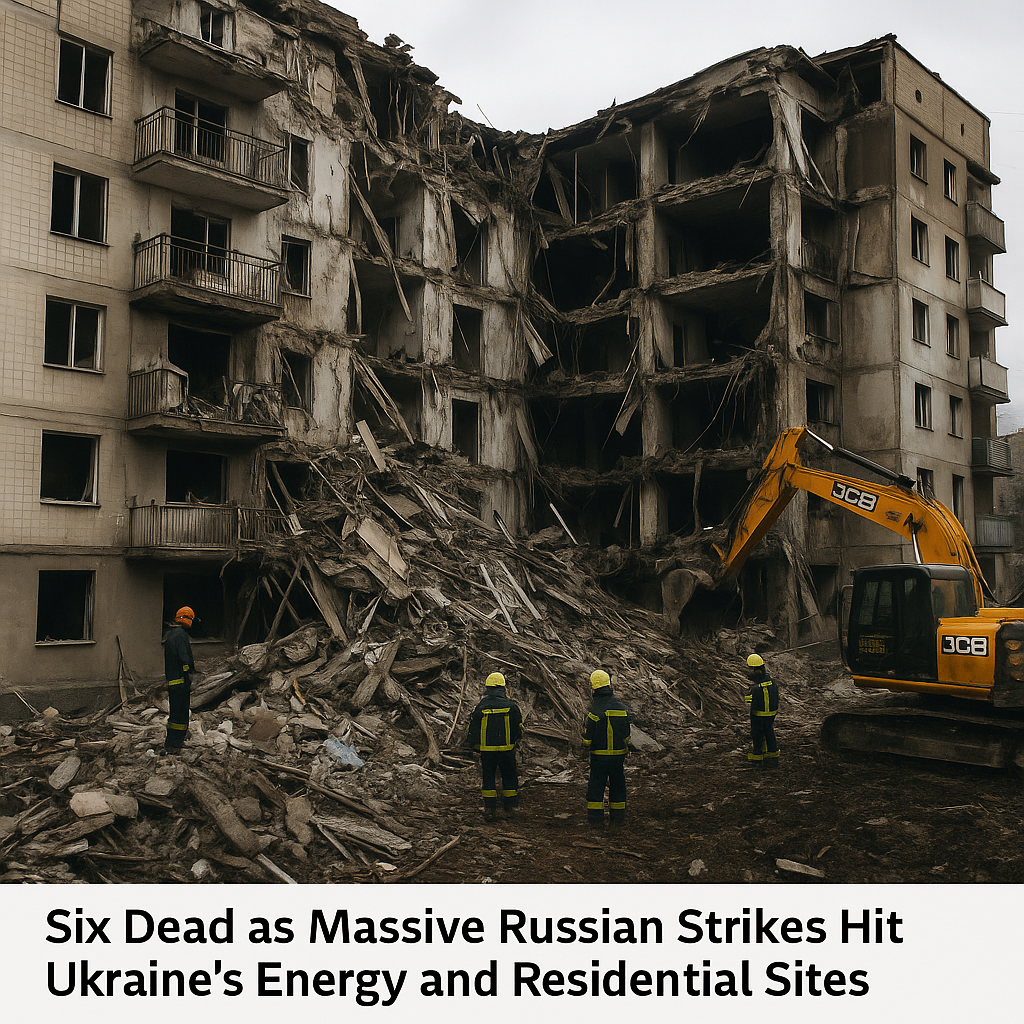Russia Launches Deadly Drone and Missile Attacks Across Ukraine
At least six people were killed overnight as Russia launched a large-scale wave of missile and drone attacks on Ukraine, hitting both residential areas and energy infrastructure across the country.
In Dnipro, a Russian strike on an apartment block left two people dead and 12 injured, according to local officials. Three more fatalities were reported in Zaporizhzhia. In total, 25 cities and regions – including Kyiv — came under fire. This caused widespread blackouts and heating outages as winter approached.
Ukraine’s Prime Minister Yulia Svyrydenko said in a Telegram post. She announced that major energy facilities in the Poltava region were severely damaged. Similar damage occurred in the Kharkiv and Kyiv regions. Emergency crews were working to restore power supplies. The Energy Ministry confirmed outages in the Dnipropetrovsk, Chernihiv, Zaporizhzhia, Odesa, and Kirovohrad regions. They said critical infrastructure had already been reconnected. Water supplies were maintained via generators.
According to the Ukrainian Air Force, Russia fired more than 450 kamikaze drones and 45 missiles during the assault. Ukrainian defenses claimed to have intercepted nine missiles and 406 drones.
Meanwhile, Russia’s Defense Ministry said its forces destroyed 79 Ukrainian drones overnight, suggesting continued cross-border attacks from Kyiv’s forces.
Energy Network Under Pressure
The latest barrage highlights Moscow’s ongoing campaign to cripple Ukraine’s energy system ahead of winter. Kyiv officials say this strategy is intended not just to lower morale but also to weaken the country’s economy. Analysts warn that this fourth wartime winter will severely test Ukraine’s ability to sustain power and heating services.
Zelensky Urges Stronger Sanctions
President Volodymyr Zelensky condemned the attacks, calling for tougher international sanctions on Russia’s energy exports. Writing on Telegram, he said, “Every Russian strike on our energy infrastructure is designed to harm civilians before winter. It must be met with a sanctions response that targets all Russian energy, without exceptions.”
His remarks came shortly after the United States granted Hungary a one-year exemption. This exemption removed restrictions on importing Russian oil and gas. The move followed Prime Minister Viktor Orbán’s visit to Washington, where he met US President Donald Trump, his longtime ally.
In October, Washington imposed new measures against two of Russia’s largest oil companies. They warned of penalties for those continuing to trade with them. Zelensky argued that exemptions like Hungary’s undermine global efforts to cut off the Kremlin’s war funding.
For Ukrainians living through nightly air raids, debates about sanctions are far from abstract. Each missile or drone strike, they say, is a reminder that Russia’s energy profits continue to fuel its war machine.

